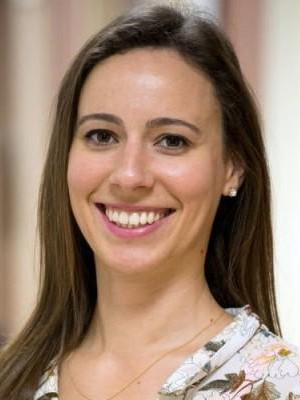About
Susana R. Cerqueira is a Research Assistant Professor in the Department of Bioengineering at Clemson University. Dr. Cerqueira holds a PhD in Regenerative Medicine, Tissue Engineering and Stem Cells from Minho University, Portugal, and completed her postgraduate training at The Miami Project to Cure Paralysis with Prof. Mary Bunge, and Prof. Jae K. Lee. Her ongoing research focuses on the study of pathological mechanisms that follow neurotraumatic events, and the development of cell-specific therapies to modulate neuroinflammation using transcriptionally informed and biomaterial-based approaches. Dr. Cerqueira’s work has been recognized with the Lone Star Paralysis Collaboration Award 2016, and the Woman in Neurotrauma Research VISA Award 2017, among others. She is an interdisciplinary researcher that combines expertise from biomedical engineering, neuroscience, and nanomedicine in the pursuit of developing effective neuroprotective clinical treatments.
Visit Dr. Cerqueira's Faculty Profile.
How their research is transforming health care
Dr. Cerqueira’s research goal is to create effective therapeutic solutions to modulate neuroinflammation and facilitate the restoration of neural connectivity in injured neurological tissues. As an interdisciplinary researcher, she is combining her diverse expertise to uncover innovative drug delivery therapeutics capable of reversing neuropathological cellular processes. Dr. Cerqueira’s discoveries and contributions to neurotrauma research involve interdisciplinary collaborative efforts, which integrate concepts from biomaterial design, drug discovery, computational biology, transcriptomics, and neuroscience. Her recent appointment as a faculty member in the Department of Bioengineering at Clemson University marks the beginning of her journey as an independent researcher committed to making creative and meaningful contributions to the development of effective treatments for neurological repair. Her work will contribute to the availability of neuroprotective clinical treatments for people suffering from neurotraumatic events. Modulation of neuroinflammation will improve tissue repair and functional recovery, and significantly improve the quality of life for neurotrauma patients, as well as their families.
Health research keywords
Neuroscience, Bioinformatics, Transcriptomics, Biomaterials, Drug delivery Neuroinflammation.

